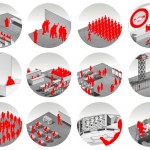
Issue 4: The State
Strategic Legacies • Political Possibilities • Socialist Construction Past and Present • Rethinking the Political • Logistics of Power • Neoliberalism and Globalization • Citizen and Migrant • Dear Comrades

Strategic Legacies • Political Possibilities • Socialist Construction Past and Present • Rethinking the Political • Logistics of Power • Neoliberalism and Globalization • Citizen and Migrant • Dear Comrades
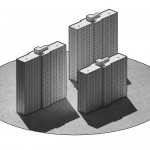
Logistics can never be understood from outside the warehouse, only by coming inside and looking at the techniques employed, the equipment and the organization of work does one understand if we find ourselves faced with something that belongs to the new economy, in the real sense of the term, or that resembles the sweatshops of Bangladesh. There is therefore no organization of standardized labor with specific figures, because every commodity sector has its specificity in industrial logistics, and because in distribution logistics, not all goods are subject to the same treatment (think only of perishable products, the cold chain or dangerous and toxic products). Speaking in the generic sense of “logistics” does not lead us anywhere.
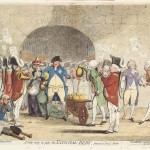
The moment has come to expose capital to the absence of reason, for which capital provides the fullest development: and this moment comes from capital itself, but it is no longer a moment of a “crisis” that can be solved in the course of the process. It is a different kind of moment to which we must give thought.… Read more →

The State of Supply Chains We have entered a time of logistics space. Contemporary capitalism is organized as a dispersed but coordinated system, where commodities are manufactured across vast distances, multiple national borders, and complex social and technological infrastructures. Geopolitical economies that were previously governed largely at the national scale – even though as part of a global system… Read more →
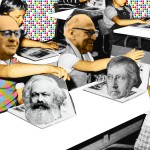
In the wake of the 2008 financial crisis, a number of movements arose which in different ways, opposed the status quo. 1 At the time, many of us in our exuberance thought these events signaled the end – or at least the beginning of the end – of capitalism. Yet from London to Oakland to Madrid to Athens to Cairo,… Read more →
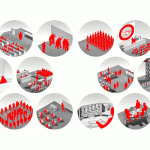
“I believe that the status of the state in current thinking on the Left is very problematic,” Stuart Hall wrote in 1984, in the midst of Margaret Thatcher’s war on the “enemy within.” He reflected on the legacy of the postwar period, which saw the extension of public services within the context of a vast expansion of the state’s intervention in social life.
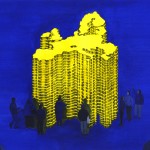
These are turbulent but confusing times in Europe. The Great Recession has taken a serious toll. In Portugal, Italy, Ireland, Greece, and Spain (the PIIGS), intervention by the EU in domestic policy seems unprecedented.

Politics, and in particular democratic politics, is often viewed within political theory as the area in which human beings come together in order to make collective decisions and to become capable of collective action. From this perspective politics is seen – in distinction to the economy, with its power and its inherent necessities – as the sphere of autonomy and freedom. In opposition to this perspective, Marx put forward the view that politics is itself heteronomous and has its share of social unfreedom.

Part workers’ center and part domestic violence resource center, the Mujeres Unidas y Activas space in East Oakland is demonstrating what it means to build a Latina immigrant women’s’ organization • It’s clear to those of us paying attention that gentrification is hitting the Bay Area particularly hard • The idea of providing immediate services to those locked up in jails and prisons is sometimes seen as a compelling and essential way to reach people inside • As a Guatemalan third-world left feminist with Marxist tendencies, I organize knowing the enemy • Sin Barras is a prison abolition group based in Santa Cruz, California.

These theses serve as a supplement to my book Transformation of Democracy and a correction to some misquotations made at the remarkable delegates conference of the SDS. I am generally of the opinion that rather than interpret texts, revolutionaries should change relations. As measured by the state’s actual power relations and by the actual relations of domination in society, the familiar expression for the modern bourgeois state – “parliamentary democracy” – represents a paradox.